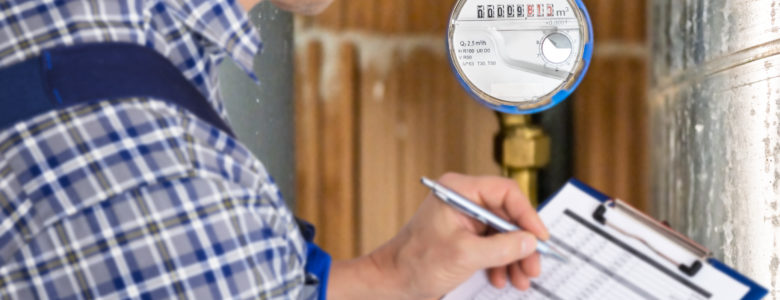Eagle Mountain City has been working to find solutions to supply chain issues related to water meter transmitters.
The devices, used to digitally capture water utility usage in the city, can malfunction due to construction, soil acidity and the age of the device.
“We obviously don’t want any broken transmitters,” says Eagle Mountain Utilities Manager Mack Straw. “Due to supply chain shortages, replacing them has become difficult.”
For the past six years, Eagle Mountain has been installing the Sensus IPearl ¾ inch or 1-inch smart point radio transmitter. Supply chain shortages, combined with the pace of Eagle Mountain’s housing growth, has limited the number of repairs to malfunctioning devices over the past two years.
“Ideally, as a city, you want to minimize these occurrences,” says Straw. “Instead, it has been quite difficult to resolve the issue due to circumstances outside our control.”
As a result, some residents may have noticed potential inaccuracies on their water utility bills, or a relatively sizeable, corrected amount due on their bill following a manual water meter reading.
In response, Eagle Mountain City has sent meter technicians to manually read thousands of water meters in the past year. Water meter readers correctly capture the water used, but malfunctioning transmitters can result in an inaccurate electronic read.
“We want to ensure accuracy,” says Eagle Mountain City Finance Director Kimberly Ruesch. “If residents have a concern, we are always willing to review their billing statements and re-read meters when needed.”
Due to Eagle Mountain’s naturally acidic soil, construction, or battery issues, about 10% of the smart point readers are inoperable in the community.
Knowing when meters have malfunctioned, however, has become a key aspect of focus for Eagle Mountain City. Currently, bills that meet certain criteria are flagged for manual readings to ensure accuracy and check the smart point readers for proper functioning.
In the past, the volume of meter misreads disallowed the City to manually inspect it within the billing period. In these cases, an average bill amount has been applied and accurate billing information is applied when a meter technician is available to reach a property at a later date.
“The City is looking into options to resolve these matters,” says City Administrator Paul Jerome. “We don’t want to return to the 1990s, but given supply chain shortages, other methods such as hiring a manual meter reader may be the most efficient method of resolving this for residents.”
Eagle Mountain City indicated that if supply chain issues persist, and growth of new building continues to slow, replacing all malfunctioning smart point radio transmitters may still take 18 months.
The accuracy of meter readings in general has become a cause of concern for some Eagle Mountain City residents. On the Eagle Mountain City Citizens Facebook page, several residents recently pointed out the volume of water usage and the associated cost of the bill.
“When smart points begin to fail, the read being sent is lower than the actual read,” says Ruesch. “In most cases what residents are noticing is an adjusted amount once a manual read has taken place to true up their billing for water that has been used but not billed yet.”
While pointing out the vast majority of bills do not have meters with faulty transmitters, Eagle Mountain City encourages residents to review their monthly statements to ensure an added layer of accuracy and to minimize the occurrence of inaccuracy.
“What we’re finding is that economic factors outside of our control are clashing with the growth of Eagle Mountain,” says Ruesch.
In the interim, Eagle Mountain City’s Water Department has committed to manually reading all the malfunctioning transmitters to ensure high-quality service for consumers.
If residents are concerned about the accuracy of their utility bills, they may contact the City’s Utility Billing office at 801-789-6609 or utilitybilling@emcity.org.


